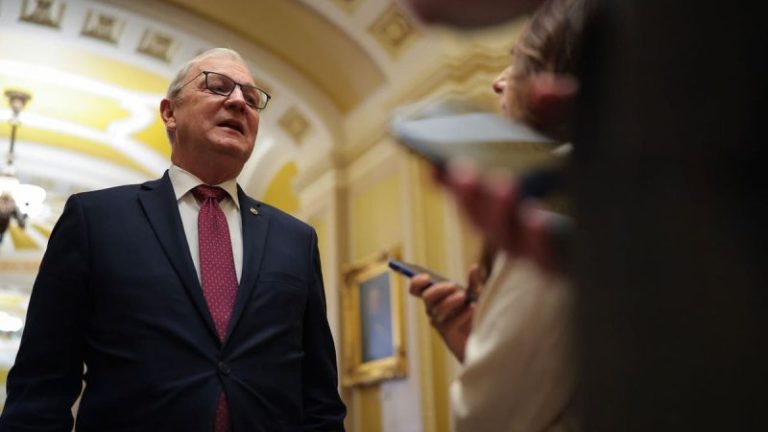Sen. Rand Paul, R-Ky., accused his ‘pro-life’ Republican colleagues of not caring about the people killed in boat strikes near Venezuela who the Trump administration, without providing evidence, claims were trafficking fentanyl.
During an appearance on ‘The Joe Rogan Experience’ released on Tuesday. Paul said GOP lawmakers ‘don’t give a s‑‑-‘ about the people who died on the vessels, blasting his colleagues for not granting the presumption of innocence.
‘I look at my colleagues who say they’re pro-life, and they value God’s inspiration in life, but they don’t give a s‑‑- about these people in the boats,’ Paul said. ‘Are they terrible people in the boats? I don’t know. They’re probably poor people in Venezuela and Colombia.’
‘I guess what I don’t feel connected to my Republican colleagues is that those lives don’t matter at all, and we just blow them up. And against all justice, and against all laws of war, all laws of just war, we have never blown up people who were shipwrecked,’ he added, referring to the administration’s reported targeting and killing of survivors of initial strikes who were clinging to wreckage.
The liberty-minded Republican said it is ‘against the military code of justice to do that.’
‘We’re doing it and everybody just says, ‘Oh, well, they’re drug dealers,” he said.
Paul criticized his fellow GOP lawmakers who have repeated the administration’s claims about the boats carrying fentanyl. He also took issue with colleagues who hold the position of, ‘Well, we’re at war with them. They’re committing war by bringing drugs into America.’
‘They’re not even coming here,’ Paul explained. ‘They’re going to these islands in the south part of the Caribbean. The cocaine — and it’s not fentanyl at all — the cocaine’s going to Europe.’
He emphasized that ‘those little boats can’t get here.’
‘No one’s even asked this common question: Those boats have these four engines on them. They’re outboard boats. You can probably go about 100 miles before you have to refuel. Two thousand miles from us, they’d have to refuel 20 times to get here,’ Paul said.
The senator accused the administration of conducting the boat strikes to create ‘a pretense and a false argument’ ahead of the operation to attack Venezuela and arrest its president, Nicolás Maduro.
‘It’s all been a pretense for arresting Maduro,’ he said. ‘So, we have to set up the predicate. We got to show you we care about drugs.’
Paul helped the Senate advance a resolution last week that would limit Trump’s ability to conduct further attacks against Venezuela after the U.S. military’s recent move to strike the country and capture Maduro, which the Kentucky Republican said amounts to war. The Upper Chamber could pass the measure later this week, although it faces an uphill battle in the House despite some support from Republicans.
‘I think bombing a capital and removing the head of state is, by all definitions, war,’ Paul told reporters before the procedural vote last week. ‘Does this mean we have carte blanche that the president can make the decision any time, anywhere, to invade a foreign country and remove people that we’ve accused of a crime?’
The lawmaker has repeatedly criticized the administration’s boat strikes on alleged narco-terrorists in recent months, often raising concerns about killing people without due process and the possibility of killing innocent people. The senator previously cited Coast Guard statistics that show a significant percentage of boats boarded on suspicion of drug trafficking are innocent.
Paul said on ‘The Joe Rogan Experience’ that he believes the administration might attack Mexico next, which Trump has signaled could be a future target.
‘They want to do that next. They want to bomb Mexico,’ Paul said.
Trump has said cartels are ‘running Mexico’ and that ‘something’s going to have to be done’ because Mexican President Claudia Sheinbaum is ‘very frightened’ of the cartels.










